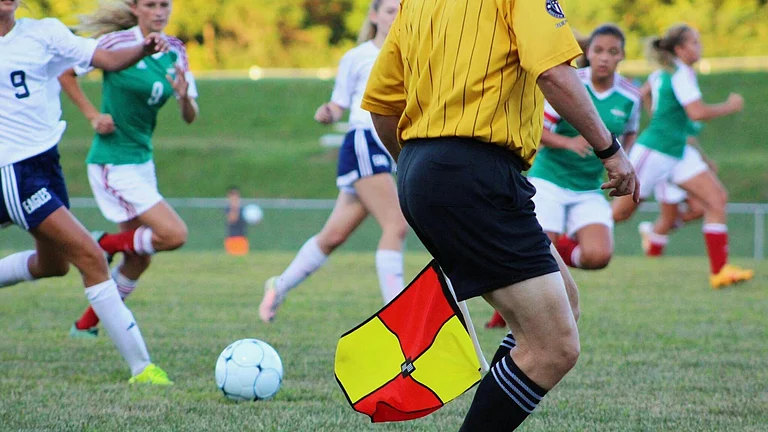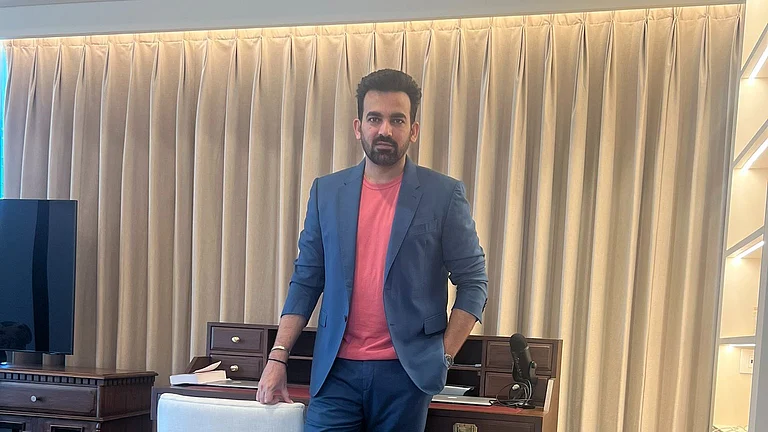Prime Minister Narendra Modi has announced that the next 25 years of Indian independence leading up to the 100th anniversary would be renamed as ‘Kartavya Kaal’, focusing on the idea of duty and devotion. Speaking at the launch of a new think tank in Andhra Pradesh recently, Modi reinstated the importance of duties for every citizen, stating “duty is not an option for us, but a resolution”. Modi’s singular focus on the duties of citizens and their importance is nothing new. Last September, his government renamed the historic Rajpath in Delhi as Kartavya Path.
Modi has constantly reaffirmed his stand by reminding, “We, The People” at every opportunity. From references on his radio programme ‘Mann Ki Baat' to calls at every critical juncture; one remembers his addresses during demonetisation, the start of the lockdowns and after Pulwama, calling upon every citizen to rise above petty interest and remember their larger duties to the nation and Constitution. His government has linked rights to duties intrinsically. In 2020, then Law Minister Ravi Shankar Prasad wrote: “Let us remember our fundamental duties in the same way we remember our fundamental rights.”
However, the linking of rights and duties does not meet with constitutional muster. The fundamental duties were not part of the original Constitution which came into force in 1950, but the fundamental rights were. The duties were inserted in 1976, during the Emergency. Many jurists and scholars have noted that such an association between rights and duties does not have constitutional backing; one did not have to perform any duty to have or qualify for their fundamental rights.
Yet, the popular strand of thought focusing on the duties of citizens is no new strategy as various governments have resorted to Constitutional references, calling upon the Fundamental Duties enshrined, appealing to the sentiment of “We, The People”, to ask citizens to perform their public and civic duties, viewed mostly at a time where public responsibility is apparently deteriorating at an alarming rate.
In doing so, the state also seeks to shift the responsibility onto larger civic society and citizens here, seeking to downplay its own responsibility. Samuel Moyn, a professor of law at Yale, pointed out: “It is undeniable that the rhetoric of duties has often been deployed euphemistically by those whose true purpose is a return to tradition won by limiting the rights of others”. It is not lost on the reader that the fundamental duties were first inserted into the Constitution during the Emergency, a time when the state was subordinating its citizens. By putting the focus on duties, the state seeks to draw away from its own shortcomings.
It is also an effective way to share blame for the state of affairs between the people and government and call upon citizens at any critical time to rise above their local conflicts and vested interest to serve a larger ideal. Margaret Miller, a historian, pointed out that wars have shaped the idea of public duty post the Industrial Revolution, as organised nation-states created a sense of expectation upon their populations to contribute at times of war or other emergencies, to co-opt the ordinary man into war efforts or in nation-building. It is why modern states are so efficient at war, amongst other activities, with centralised bureaucracies and governments, the idea of duty is effectively used to activate every part of a citizenry.
In India as well, this is a popular line of reasoning, best embodied in the work of notable jurist Nani Palkhivala, who in his aptly-titled book, “We, The People” set out arguments to this tune. Speaking of a moral and spiritual recession amongst the population, Palkhivala underlined this as a major failing of the Constitution so far. He argued for a push to become more citizen-oriented, to create ‘movers of people, mobilisers of opinion’; for both Constitution and state to push for citizens to assume moral leadership at all levels, in order for India to reach its ideal nationhood. Palkhivala further went on to assert that the reason for the deterioration was that “far too few citizens are interested in public welfare”.
To this end, fundamental duties are viewed as a way to share the onus for nation-building and all-round development between citizens and state. The fundamental duties reaffirm loyalty to the flag and ask citizens to respect the national anthem, and protect public property, all intended to invest citizens in the larger idea of an ideal India. Modi is not the first to latch onto such thinking, but his government’s push to centre the idea of ‘kartavya’ is much more prominent than any before, as it conveniently fits into his other narratives.
Modi, like Palkhivala, has also called for a return to India’s glorious past, using this forgotten glory, to imagine a new era of public ownership and empowerment. By linking this ‘kartavya’ to India’s 100 years of independence, he aims to merge the glorious past with the new ideal of India, “a pure, moral entity”. It is how he fashions his new nationalism; using India’s ancient past to justify the linking of rights to duties, and shift the focus away from fundamental rights to duties. Although the Constitution seems to suggest the equal importance of the two, the duties enshrined in it are called Fundamental Duties, just like the Fundamental Rights, nowhere does it reaffirm the supposed stand that the two are linked. Duties are still non-justiciable and were not part of the original basic structure of the Constitution.
All the same, duties are a powerful ideological tool intended to engineer citizen empowerment, more participation in public affairs, and most importantly, as noted by many scholars and jurists, subordinate citizens to a larger ideal, counteracting the supposed deficiencies of the government. Modi knows this very well.

























